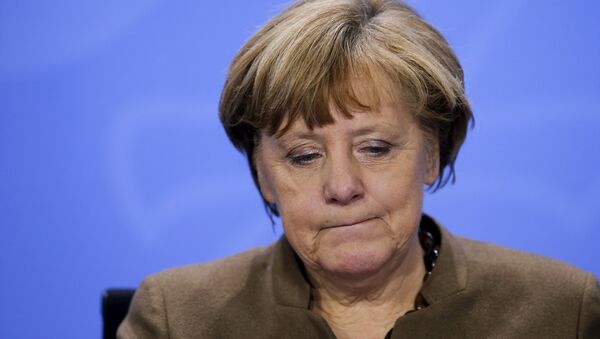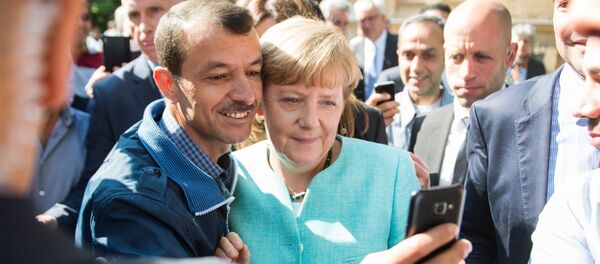In the latest poll, commissioned for media outlets Ostsee-Zeitung, Nordkurier, Schweriner Volkszeitung and NDR, almost one in four will vote for either the right-wing populist AfD or the far-right ultranationalist National Democratic Party of Germany (NPD).
Terrorism and Islamophobia
Merkel has drawn strong criticism over her 'open doors' policy over refugees. In the summer of 2015, she made clear Syrian refugees would be welcome in Germany, precipitating a huge movement of migrants from Syria, Afghanistan and Iraq — among other nations — fleeing warzones.
Refugee influx Leaves 'Mama #Merkel' isolated in EU
— 2020EU (@2020EU) 1 September 2016
Read Opinion @ https://t.co/TvRhb8Rccl pic.twitter.com/y44BkHyxYl
However, the sheer volume of migrants arriving in Germany — many of them Muslims — has caused major strains in many German states, with asylum-seekers creating a burden on local authorities. More than 1.1 million entered Germany in 2015 alone.
Merkel said, June 18, refugees had not brought terrorism to Germany, adding that Islam belonged in the country as long as it was practised in a way that respected the constitution. Germany has been rocked by a spate of attacks on civilians — some of them connected with Daesh, or ISIL, stoking further anti-migrant sentiment within Germany.
#Merkel stands her ground on Germany's ability to cope with #MigrantCrisis: "We can do it" — sentence is still right pic.twitter.com/jiy7t2JpCf
— DW | Politics (@dw_politics) 1 September 2016
However, Merkel came out fighting this week telling German TV that much had been achieved since she declared an open doors policy to refugees in 2015. "We have achieved a lot since then and we need to do some more. We are at a completely different position since last year," she said.



